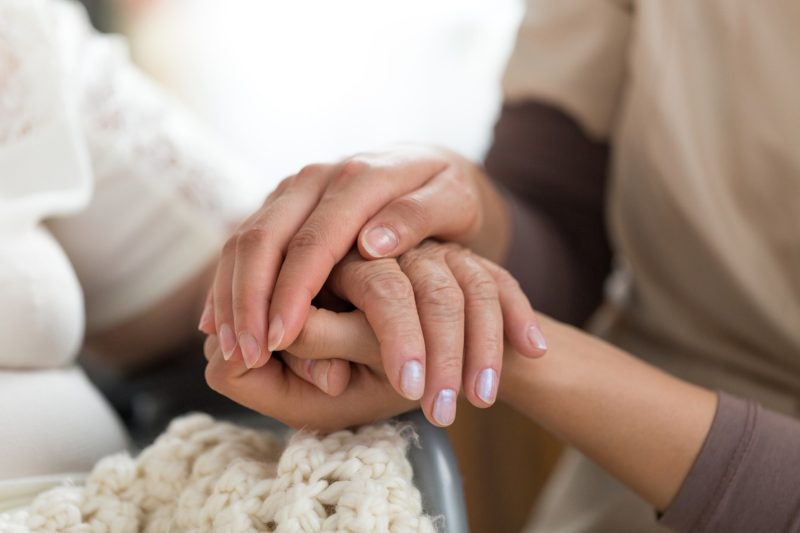Caring for an elderly loved one at home is an act of compassion, love, and dedication—but it also comes with challenges that require patience, planning, and self-care. As life expectancy increases, more families are stepping into caregiving roles to help aging parents or relatives remain independent and comfortable in their own homes.
Whether you’re new to caregiving or have years of experience, this guide offers practical tips, emotional support strategies, and resources to help you care for your loved one while also caring for yourself.
🏡 Why In-Home Elderly Care Matters
Home is often where seniors feel most safe, familiar, and empowered. Caring for them in this environment:
- Preserves dignity and independence
- Strengthens family bonds
- Reduces healthcare costs
- Promotes emotional well-being and routine
However, home care can be physically and emotionally demanding, making the caregiver’s role equally crucial.
🩺 1. Create a Safe and Accessible Living Space
Ensuring the home environment is safe and senior-friendly is essential to prevent accidents and foster independence.
Home Safety Tips:
- Install grab bars in bathrooms and near stairs
- Use non-slip mats in the shower and kitchen
- Remove loose rugs and clutter to prevent falls
- Keep commonly used items within easy reach
- Ensure good lighting throughout the house
Tip: Conduct a home safety audit regularly as your loved one’s mobility or vision changes.
🕰 2. Establish a Consistent Daily Routine
A stable routine can reduce anxiety and confusion, especially for seniors with memory loss or dementia.
Build Structure Into the Day:
- Set consistent times for meals, medication, hygiene, and sleep
- Include activities that engage the mind and body (puzzles, light exercise, music)
- Schedule medical appointments in the morning when energy levels are highest
Tip: Visual calendars and daily schedules can be helpful reminders.
💊 3. Manage Medications Carefully
Many seniors take multiple medications daily, and keeping track of them is vital for health and safety.
Medication Management Tips:
- Use a pill organizer or dispenser
- Create a medication log (include dosage, frequency, side effects)
- Set alarms or reminders
- Keep a list of all medications for doctor visits
Tip: Regularly review medications with a pharmacist or healthcare provider to prevent interactions.
🧘♀️ 4. Support Emotional and Mental Well-Being
Mental health is just as important as physical health. Aging can bring loneliness, depression, or anxiety—especially when mobility or social interaction is limited.
Ways to Support Emotional Health:
- Encourage daily conversations and active listening
- Help them stay socially connected (calls, visits, online groups)
- Involve them in hobbies, games, or volunteer projects
- Validate their feelings and encourage positive thinking
Tip: Look out for signs of depression, such as sleep changes, withdrawal, or loss of interest in favorite activities.
🍎 5. Provide Nutritious Meals and Hydration
A healthy diet boosts energy, brain function, and immunity in older adults.
Meal Planning Suggestions:
- Prioritize whole grains, fruits, vegetables, and lean proteins
- Ensure adequate calcium and Vitamin D for bone health
- Prepare easy-to-chew, high-fiber foods
- Offer small, frequent meals if appetite is low
Tip: Hydration is often overlooked. Offer water, herbal teas, or soups throughout the day.
🛠 6. Know When to Ask for Help
Caring for someone 24/7 is a big responsibility. You don’t have to do it alone.
Sources of Support:
- Respite care: Temporary relief from caregiving duties
- In-home aides: Assistance with bathing, dressing, or housekeeping
- Adult day programs: Offer socialization and care during work hours
- Local senior services: Transportation, meals on wheels, or wellness checks
Tip: Involve other family members and rotate responsibilities where possible.
🧘 7. Take Care of Yourself Too
You can’t pour from an empty cup. Caregiver burnout is real.
Caregiver Self-Care Tips:
- Take breaks and rest when needed
- Join a caregiver support group (online or in-person)
- Set realistic expectations and boundaries
- Eat well, exercise, and prioritize your own health appointments
Tip: Practice self-compassion—remind yourself you’re doing your best.
FAQs for Family Caregivers
Q1: How can I tell if my loved one needs more help than I can provide?
A: Look for signs like frequent falls, confusion, or missed medications. Consult a doctor or geriatric care manager for a care assessment.
Q2: Is it okay to feel frustrated or overwhelmed as a caregiver?
A: Absolutely. These feelings are normal. It’s important to acknowledge them and seek support when needed.
Q3: What financial help is available for caregiving at home?
A: Check for local government programs, veterans benefits, Medicaid waivers, or long-term care insurance policies.
Q4: How do I talk to my loved one about accepting help?
A: Approach with empathy. Use “I” statements and frame help as a way to maintain their independence.
Q5: Can technology help me manage care more easily?
A: Yes! Use medication reminder apps, video calls, fall detectors, and GPS trackers for added peace of mind.
Q6: How can I prevent falls at home?
A: Declutter walkways, add grab bars, install proper lighting, and encourage wearing non-slip footwear.
Q7: How often should seniors see a doctor?
A: At least once a year, but more frequently if managing chronic conditions or cognitive decline.
Q8: How do I handle resistance to bathing or hygiene routines?
A: Try to understand their discomfort, be patient, and maintain a calm tone. Consider involving a professional if needed.
🏁 Conclusion: Compassionate Care Starts at Home
Caring for an elderly loved one at home is a journey filled with both challenges and rewarding moments. With thoughtful planning, empathy, and support, you can create a nurturing environment that promotes comfort, dignity, and connection.
Remember: You’re not just providing care—you’re preserving quality of life. And that’s a beautiful gift.









